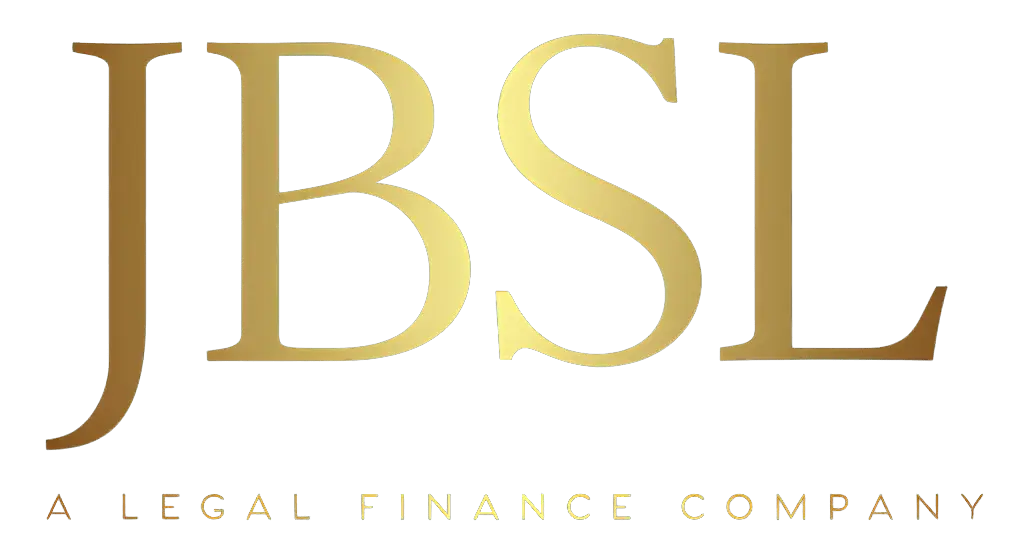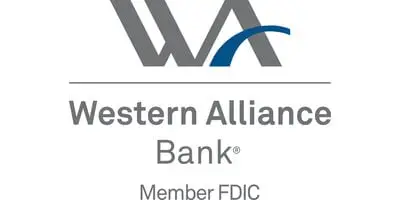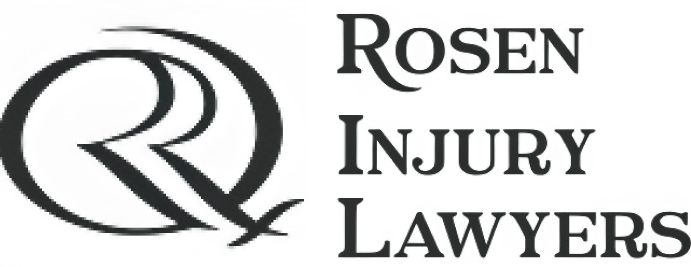Please join us for a Bench-Bar Discussion on
April 11th - 12th, 2024
Mass Torts and Complex Litigation
at GW Law
Where Bench & Bar Meet
2025 Event Agenda Coming Soon

Introduction to the Event & Hotel Information
James F. Humphreys Complex Litigation Center
GWU LAW
2000 H Street NW, Washington DC
April 11th – 12th, 2024
Your co-hosts, Patrick Luff and Mark York want to welcome you to GW Law Bench & Bar ’24.
The April 2024 conference will scrutinize the evolving landscape of MDL practices, complex litigation case management, and the ongoing challenges that have surfaced in the wake of Covid-19 and other recent global events.
This year’s conference will cast a spotlight on pertinent legal issues shaping class actions, ethical considerations surrounding attorney fees in class actions and mass torts, and the expanding influence of litigation financing in complex cases. Additionally, we will extend discussions from our previous conferences, including the critical topic of mass tort bankruptcies addressed in November 2022.
Effective management of mass torts and intricate commercial litigation demands bipartisan cooperation between plaintiffs’ and defense counsel, underpinned by thorough disclosure to the judiciary. The forthcoming discussions at this conference are designed with this imperative goal at heart.
The event presents numerous opportunities for leadership figures, executive committee members in attendance, as well as judges overseeing complex cases, to engage in meaningful dialogue about establishing best practices and driving efficient change in managing extensive dockets.
In keeping with our tradition of confidentiality to promote open communication, the conference is held under the Chatham House Rule: “Participants are free to use the information received, but neither the identity nor the affiliation of the speaker(s), nor that of any other participant may be disclosed.” The success of this conference is made possible through attendees’ registration fees and the generous support from our esteemed sponsors.
Welcome

Welcome to the James Humphreys Complex Litigation Center Bench-Bar Forum 2024, held in collaboration with our conference partners and speakers including members of the judiciary. Our Team is thrilled to connect with all of you after another challenging, yet motivating year—and we are honored to produce this unique event.
We would like to extend our gratitude to the program’s co-chairs, Patrick Luff and Mark York, for their thoughtful collaboration and contributions in securing an exemplary group of panelists. Their commitment to providing the legal community with insightful perspectives is appreciated beyond measure.
We are incredibly grateful to the many judges who have taken invaluable time away from their dockets to be with us, and to all the litigators and experts for their contributions and insights in this ever-changing field in the legal industry. It is truly an exceptional opportunity to learn from such prestigious legal minds.
Of course, this fantastic event would not be possible without our GW Law School hosts. As in past years, the team has been instrumental in bringing this event to fruition and we appreciate their partnership and connecting us with some of the top legal minds in the industry.
Finally, many thanks to our generous sponsors whose proceeds benefit the James F. Humphreys Complex Litigation Center. In addition, your attendance directly impacts the scholarship fund supporting our other student programs.
We know you will find tremendous value in hearing from this year’s panelists and encourage you to share your own insights, ask questions and collaborate over the next few days.
Thank you again for joining us and enjoy!
Schedule of Events
For speaker bios, click here.
Thursday April 11, 2024
8:00 a.m. – 8:45 a.m.
Breakfast
8:45 a.m. – 9:00 a.m.
Opening Remarks
9:00 a.m. – 10:30 a.m.
Panel One: Bankruptcy 1: Whither the Texas Two Step
- A company with tens of thousands of product liability claims pending against it files for Chapter 11.
- What advantages does it seek to gain from this maneuver?
- What responses should the claimants consider, and assuming that the bankruptcy proceeds, how will the claims process work, and what are the pitfalls of which claimants should be aware?
- What role, if any, will existing MDL counsel have in the bankruptcy: who will be doing what going forward?
- In most MDLs, there are common benefit orders: what happens to them in Chapter 11?
Panel One Guests
- Moderator: Lindsey Simon, University of Georgia
- Honorable Shelley C. Chapman (Ret.), Willkie
- Greg Gordon, Jones Day
- Anne Andrews, Andrews & Thornton
- Samir Parikh, Lewis & Clark Law School
10:45 a.m. – 12:15 p.m.
Panel Two: Bankruptcy 2: Non-Debtor Releases and the Implications
- Regardless of the outcome in Purdue Pharma, there will be efforts to change the law.
- This panel will discuss whether any non-debtors should ever be able to obtain releases in the bankruptcy court.
- Some are routinely given now; why are they allowed and apparently non-controversial?
- The discussion will then move on to what categories of individuals or companies should be eligible – corporate officers; parents and subsidiaries; insurance companies; stockholders; others.
- Should the law be similar to the one for asbestos?
- Should it be limited to those who contribute funds for future claims?
- What other kinds of limits should there be?
- What discovery of eligible non-parties should be provided?
Panel Two Guests:
- Moderator: Alan Morrison, George Washington University
- Ken Feinberg, Special Master, The Feinberg Group
- Honorable Robert D. Drain (Ret.), Skadden, Arps
- Arik Preis, Akin Gump
- Scott Partridge, Partridge LLC
12:15 p.m. – 1:30 p.m.
Lunch with keynote speaker Honorable Robert M. Dow, Jr., hosted by Kresch Legal Services
Counselor to Chief Justice Roberts, US Supreme Court, United States District Court Judge, Northern District of Illinois
1:30 p.m. – 3:00 p.m.
Panel Three: Proposed Rule 16.1
- Rulemaking for MDLs: Do we need special rules for MDLs, or are other forms of guidance a better idea?
- The Civil Rules Committee’s proposed Rule 16.1 has met with mixed reviews: is anything needed, or did the proposal go too far or not far enough?
- In addition, the panel will discuss whether some of the ad hoc devices now commonplace in mass tort MDL proceedings may be subject to challenge because they are arguably not authorized by the MDL statute or they conflict with other legal principles.
- These include orders that (1) limit the ability of non-leadership counsel to participate in the MDL proceeding; (2) permit direct filing but differ from the case transfer process specified by the MDL statute; or (3) prevent claimants from filing their cases pending further order of the court.
Panel Three Guests:
- Moderator: Rick Marcus, UC San Francisco
- Honorable Lee Rosenthal, United States District Court, Southern District of Texas
- Elizabeth J. Cabraser, Lieff Cabraser
- Deidre Kole, Assistant General Counsel, Johnson & Johnson – Litigation
- Kaspar Stoffelmayr, Bartlit Beck
3:15 p.m. – 4:45 p.m.
Panel Four: Uninjured Plaintiffs in MDLs
- Determining the Extent of Actually Injured Claimants in Mass Tort MDLs: Defendants claim, and lawyers for plaintiffs often agree, that there are many cases filed (or held in abeyance) in MDLs, in which it turns out that there is no evidence that a number of the claimants have been injured or even used the product at issue.
- What can be done about the problem beyond census forms and fact sheets?
- What about using a more robust Rule 11 as applied to attorneys with large inventories in MDLs, or having early random audits of claims, to assure that counsel has done due diligence on all their clients?
- This appears to be a significant problem in the Camp Lejeune litigation: to what extent is that case different, and what lessons can be learned from it.
Panel Four Guests:
- Moderator: Jay Tidmarsh, University of Notre Dame
- Honorable Karen Caldwell, Chair of Judicial Panel on Multidistrict Litigation (JPML), United States District Court, Eastern District of Kentucky
- Lynn Baker, University of Texas
- Patrick Luff, Luff Law Firm
- John Beisner, Skadden, Arps
- Scott DeNardo, Archer Systems
Reception hosted by Torticity
At the Tasher Great Room, down the hall from Moot courtroom.
Friday April 12, 2024
8:00 a.m. – 8:45 a.m.
Breakfast
8:45 a.m. – 9:00 a.m.
Opening Remarks
9:00 a.m. – 10:15 a.m.
Panel Five: Litigation Finance
- Update on Litigation Finance: One part of this panel would be on what Chief Judge Connelly is doing regarding litigation finance in patent cases.
- Do patent cases present more or less of a concern than other cases?
- In patent as well as some other cases, does the proportion of litigation funding become so significant that it raises questions as to whether the funder should be named as the real party in interest under Rule 17?
- When the funding is for the attorneys, what should be disclosed and to whom should it be disclosed?
- If control is the issue, do rules like New Jersey’s, which requires counsel to affirm that there is no undue control, do the job?
- Might courts issue local rules requiring counsel to affirm that, if there is any litigation financing in the case, the client and/or counsel affirm that there are court-approved specific provisions in the financing agreement that seem likely to assure that the client controls the litigation?
- Last, the litigation funding order in the 3M case appears to limit the amounts that funders advance to claimants; do federal judges have that power in non-class cases, or do state laws provide the only limits?
Panel Five Guests:
- Moderator: Roger Trangsrud, George Washington University Law School
- Phil Goldberg, Shook Hardy & Bacon
- Sarah Lieber, JBSL Legal Finance LLC
- Maya Steinitz, Boston University
- Samir Parikh, Lewis & Clark Law School
- Alex Walsh, Walsh Law
10:30 a.m. – 12:15 p.m.
Panel Six: Management of Mega Mass Torts: Camp Lejeune and 3M Ear Plugs
- How should Mega-Mass Tort cases be managed?
- For example, what approach did the transferee judges take in the 3M earplug litigation, the opiate litigation, and the Camp Lejeune litigation?
- What worked and what did not work well?
- What data from resolved cases about how the level of attrition in mass torts cases exists, and what role, if any, should those data play in the design of management in future MDL tort cases?
Panel Six Guests:
- Moderator: Jay Tidmarsh, University of Notre Dame
- Honorable Eldon E. Fallon, United States District Court, Eastern District of Louisiana
- Jennifer Hoekstra, Aylstock, Witkin, Kries & Overholtz
- Aviva Wein, Assistant General Counsel, Johnson & Johnson, Litigation Policy – Risk Management
- Randi Ellis, Special Master, Randi S. Ellis, LLC
- Deborah Hensler, Stanford University
Speaker List & Bios
Click on name to access the speaker’s bio.
Bankruptcy 1: Whither the Texas Two Step
- Moderator: Lindsey Simon, University of Georgia
- Honorable Shelley C. Chapman (Ret.), Willkie
- Greg Gordon, Jones Day
- Anne Andrews, Andrews & Thornton
- Samir Parikh, Lewis & Clark Law School
Bankruptcy 2: Non-Debtor Releases and the Implications
- Moderator: Alan Morrison, George Washington University
- Ken Feinberg, Special Master, The Feinberg Group
- Honorable Robert D. Drain (Ret.), Skadden, Arps
- Arik Preis, Akin Gump
- Scott Partridge, Partridge LLC
Proposed Rule 16.1
- Moderator: Rick Marcus, UC San Francisco
- Honorable Lee Rosenthal, United States District Court, Southern District of Texas
- Elizabeth J. Cabraser, Lieff Cabraser
- Deidre Kole, Assistant General Counsel, Johnson & Johnson – Litigation
- Kaspar Stoffelmayr, Bartlit Beck
Uninjured Plaintiffs in MDLs
- Moderator: Jay Tidmarsh, University of Notre Dame
- Honorable Karen Caldwell, Chair of Judicial Panel on Multidistrict Litigation (JPML), United States District Court, Eastern District of Kentucky
- Lynn Baker, University of Texas
- Patrick Luff, Luff Law Firm
- John Beisner, Skadden, Arps
- Scott DeNardo, Archer Systems
Litigation Finance
- Moderator: Roger Trangsrud, George Washington University Law School
- Phil Goldberg, Shook Hardy & Bacon
- Sarah Lieber, JBSL Legal Finance LLC
- Maya Steinitz, Boston University
- Samir Parikh, Lewis & Clark Law School
- Alex Walsh, Walsh Law
Management of Mega Mass Torts: Camp Lejeune and 3M Ear Plugs
- Moderator: Jay Tidmarsh, University of Notre Dame
- Honorable Eldon E. Fallon, United States District Court, Eastern District of Louisiana
- Jennifer Hoekstra, Aylstock, Witkin, Kries & Overholtz
- Aviva Wein, Assistant General Counsel, Johnson & Johnson, Litigation Policy – Risk Management
- Randi Ellis, Special Master, Randi S. Ellis, LLC
- Deborah Hensler, Stanford University
Additional Resources
Law Firm Host

Gold Sponsors


Luncheon Sponsors

Welcome Dinner for Judges,
Panelists, and Speakers


Reception

Silver Sponsors



Bronze Sponsors



Register Now
James F. Humphreys Complex Litigation Center
GWU LAW
April 11th – 12th, 2024
Registration Cost: $899
The button will take you to our registration page where you can add the attendee’s information and easily pay.

